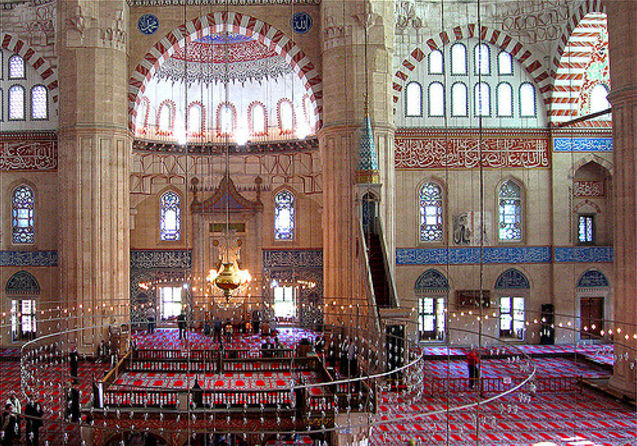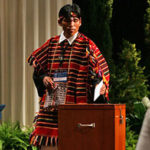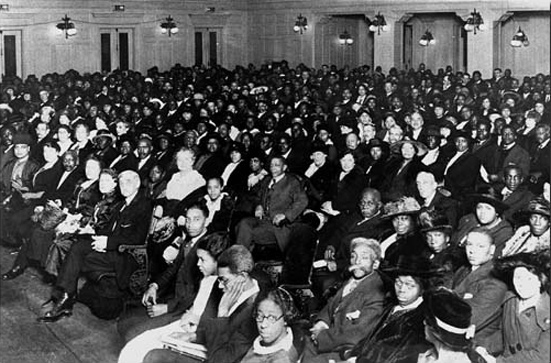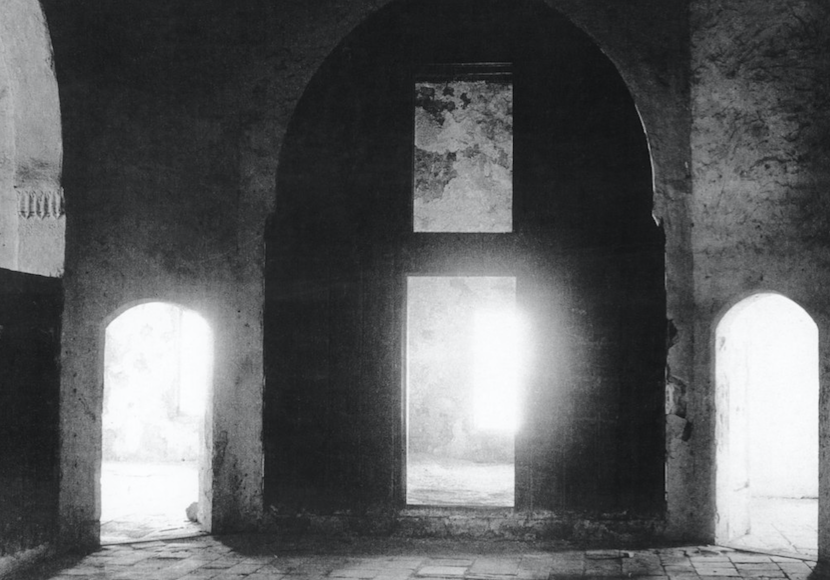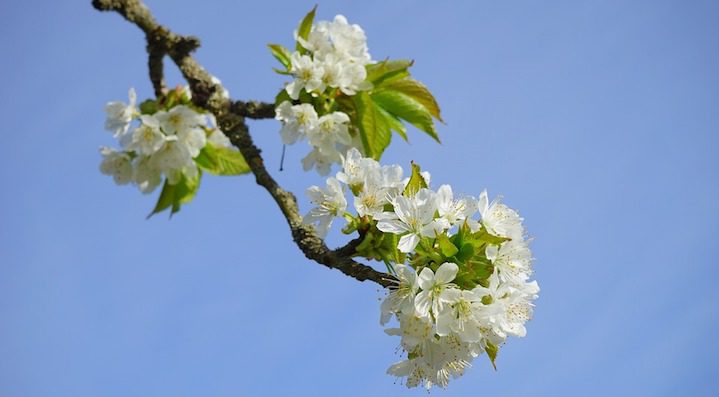
Tablet of the Branch
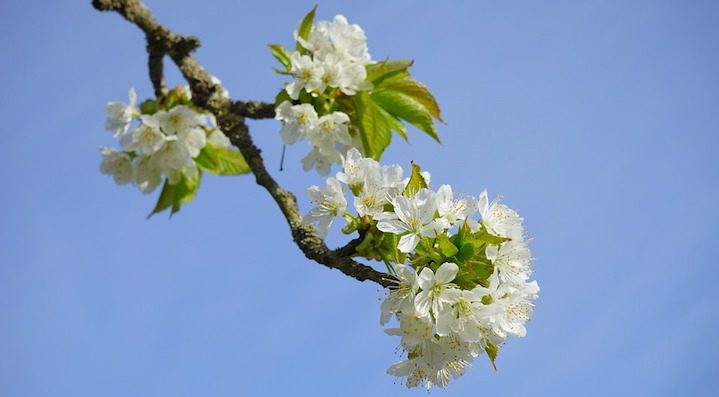 In Adrianople, Bahá’u’lláh began the public announcement of his mission; writing to kings and rulers and to followers of the Bab. Also from this period, Bahá’u’lláh was already looking far ahead to the time when he would no longer be in the physical world and he was laying the foundations of the Baha’i Faith after his passing.
In Adrianople, Bahá’u’lláh began the public announcement of his mission; writing to kings and rulers and to followers of the Bab. Also from this period, Bahá’u’lláh was already looking far ahead to the time when he would no longer be in the physical world and he was laying the foundations of the Baha’i Faith after his passing.
We have already noted the role of Abdu’l Baha in his journeys to the West,[1][2][3][4], and in his role as the foundation stone of human unity. We have seen the extraordinary work schedule that he maintained. In France, his first address was concerned with kindness and welcome to strangers.
In the Tablet of the Branch Bahá’u’lláh begins to raise the consciousness of his followers to the role that Abdu’l Baha would play. This was later to be followed by statements in Bahá’u’lláh’s book of laws, and then even more explicit statements in his last will and testament.
By the time the Tablet of the Branch was written, Abdu’l Baha was already a noted follower of Bahá’u’lláh, so much so that Adib Taherzadeh notes that even Bahá’u’lláh’s opponents recognised that the life and character of Abdu’l Baha constituted a proof of Bahá’u’lláh’s mission – as a mulla once publicly did from a pulpit.
While still in Iraq, Abdu’l Baha was already recognised by leaders of government and thought as a person of astonishing wisdom and knowledge, even though he was still a teenager, as Bahá’u’lláh tasked him both to write and engage in discourses with those interested in his teachings.
In the Tablet of the Branch, which refers to Bahá’u’lláh as the “tree beyond which there is no passing” (the Sadratu’l-Muntahá), he refers to Abdu’l Baha as a holy being that has branched from that tree.
There hath branched from the Sadratu’l-Muntahá this sacred and glorious Being, this Branch of Holiness; well is it with him that hath sought His shelter and abideth beneath His shadow. Verily the Limb of the Law of God hath sprung forth from this Root which God hath firmly implanted in the Ground of His Will, and Whose Branch hath been so uplifted as to encompass the whole of creation.
… Render thanks unto God, O people, for His appearance; for verily He is the most great Favour unto you, the most perfect bounty upon you; and through Him every mouldering bone is quickened. Whoso turneth towards Him hath turned towards God, and whoso turneth away from Him hath turned away from My Beauty, hath repudiated My Proof, and transgressed against Me. He is the Trust of God amongst you, His charge within you, His manifestation unto you and His appearance among His favoured servants.[1]
In Bahá’u’lláh’s book of laws and in this will and testament, Bahá’u’lláh made explicit that the references to “the branch” were to Abdu’l Baha.
Among other things, Abdu’l Baha, was appointed by Bahá’u’lláh as the interpreter of his teachings. In later years he was asked to explain the meaning of the references to the branch in the Tablet of the Branch. In his reply he stated:
“I affirm that the true meaning, the real significance, the innermost secret of these verses, of these very words, is my own servitude to the sacred Threshold of the Abhá Beauty, [Bahá’u’lláh] my complete self-effacement, my utter nothingness before Him. This is my resplendent crown, my most precious adorning. On this I pride myself in the kingdom of earth and heaven. Therein I glory among the company of the well-favored![2]
Sources: Adib Taherzadeh, Revelation of Bahá’u’lláh, Volume 2, Chapter 18
(This article is the 133rd in a series of what I hope will be 200 articles in 200 days for the 200th anniversary of the birth of Bahá’u’lláh. The anniversary is being celebrated around the world on 21 and 22 October 2017, The articles are simply my personal reflections on Bahá’u’lláh’s life and work. Any errors or inadequacies in these articles are solely my responsibility.)
